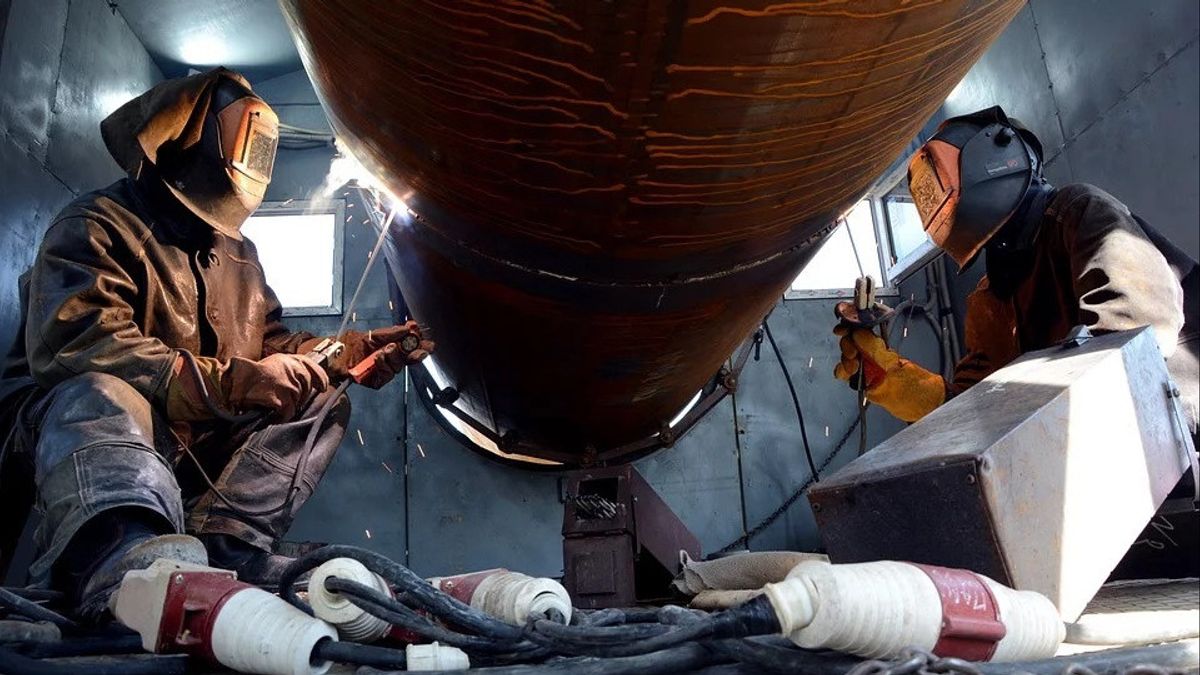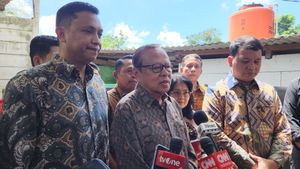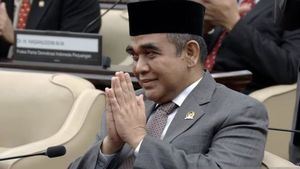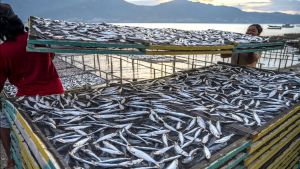JAKARTA - Several days ago the Natuna waters heated up after Chinese ships entered the area. The existence of these Chinese ships clearly violates the territorial boundaries that have been regulated in international regulations.
The Indonesian Minister of Foreign Affairs, Retno Marsudi said, as a country that has been a member of the United Nations Convention on the Law of the Sea (UNCLOS) since 1982, China or the People's Republic of China (PRC) has an obligation to comply with what is in UNCLOS.
"Well, what is in between, regulates the issue of EEZ [Exclusive Economic Zone] and so on, so that the EEZ, line draws related to EEZ and so on in Indonesia are appropriate. We just want China to comply with international law, including at UNCLOS, "said Retno a few days ago.
The natural potential of Natuna is indeed attractive for a number of countries to be explored, including by China. Well, in 1996, Indonesia and China had planned to cooperate in the construction of a gas pipeline from Indonesia to China.
Quoted from Bisnis.com, Wednesday, January 8, PT Pertamina and China Oil Offshore (COO) approved the construction of a 2,562 kilometer natural gas pipeline from Natuna to Guangdong.
Pertamina's Managing Director at that time, Baharuddin said that the construction of the pipeline was carried out to realize China's demand for natural gas from the Natuna project.
"The construction of the pipeline installation is just waiting for the final meeting to be held by the Indonesian and Chinese parties in the near future," he said.
He explained that Guangdong Province is slightly above Hong Kong. Because it requires a pipeline network from Natuna to the area along 2,562 km.
According to him, the pipeline network construction from Natuna to Guangdong was carried out through an international auction process. "In fact, Pertamina intends to withdraw the pipeline to Arun, Aceh because through this area the revenue is more strategic," said Baharudin.
The relationship between Indonesia and China at that time was indeed good, because in addition to natural gas, Pertamina also intended to offer other cooperation regarding the mining sector in Indonesia with China.
In addition, Pertamina also received positive responses for activities in the field of LNG marketing to Japan, South Korea and Taiwan.
"Generally, prospective buyer countries think positively to be considered as a source of supply, given the gas reserves and location are very ideal," he said.
He explained that striving for investment funds for the project will be obtained from loans under normal terms with a long payback period. The loan is only for handling the downstream activities of the LNG plant, not for upstream activities.
Baharuddin also stated that China would increase its investment activities in the oil sector, if the Indonesian government offered activities that could be mutually beneficial. The construction of a pipeline network to China is Pertamina's second cooperation after reaching an agreement between the BUMN and Thailand's PTT.
Returning to the issue of natural gas, data from the Ministry of Energy and Mineral Resources (ESDM) states that Indonesia has natural gas reserves of 144.06 trillion cubic feet (TCF), consisting of proven reserves (P1) of 101.22 TSCF and potential reserves ( P2) 42.84 TSCF.
Well, the largest gas reserves in Indonesia are in Natuna, precisely in the 49.87 TCF East Natuna Block. Then followed by the Masela Block in Maluku 16.73 TCF, and the Indonesia Deepwater Development (IDD) Block in the Makassar Strait with 2.66 TCF.
The large natural gas content in Natuna has made it touted as the largest gas reserve in the Asia Pacific.
The English, Chinese, Japanese, Arabic, and French versions are automatically generated by the AI. So there may still be inaccuracies in translating, please always see Indonesian as our main language. (system supported by DigitalSiber.id)













